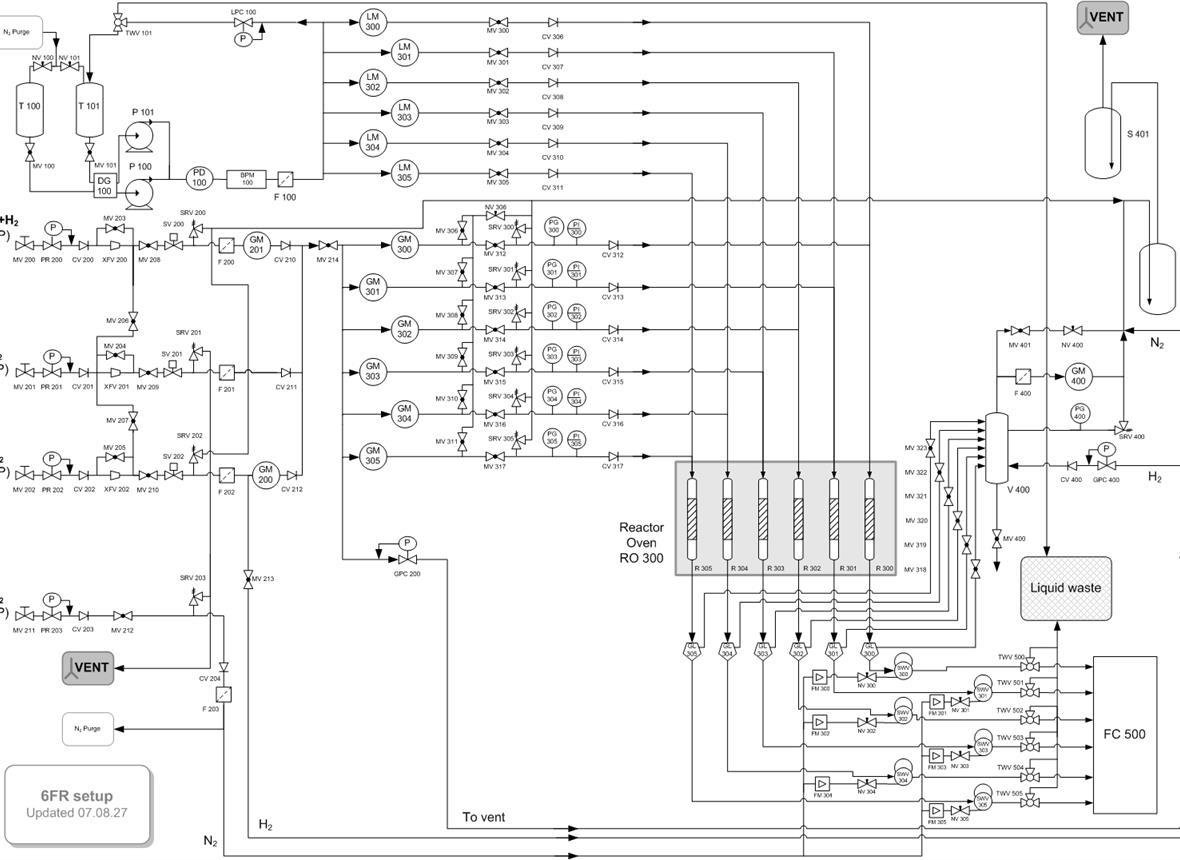Abstract
This work describes the effect of the support (TiO2, hybrid 2TiO2–SiO2, SBA-15 and SBA-15 decorated with TiO2 particles) on the catalytic activity of ZnNi in the gas-phase hydrodeoxygenation (HDO or O-removal) of and the liquid-phase hydrodearomatization (HDA) of synthetic diesel. These reactions are representative of the two major challenges of the hydrotreating unit embedded in a sustainable refinery: (i) decreasing oxygen content of bio-oils (produced in the pyrolysis of lignocellulosic biomass); and (ii) decreasing aromatics content in diesel. The fresh and deactivated were characterized by , N2 adsorption–desorption, TPR, /TPD-NH3, , , and coke . Under steady-state conditions, the ZnNi supported on SBA-15 decorated with TiO2 particles displayed the highest activity in the hydrodeoxygenation of (selectivity toward deoxygenated products > 95%) whereas the ZnNi/SBA-15 displayed the highest activity in the hydrodearomatization of synthetic diesel. It has been shown that dispersion of the active ingredient is favoured on the SBA-15 substrate. The relationship between structure and activity demonstrated that HDO and HDA reactions require optimized metal dispersion and acid function, metal dispersion being more important for HDA than for HDO reactions.
Keywords
HCE
HPC
